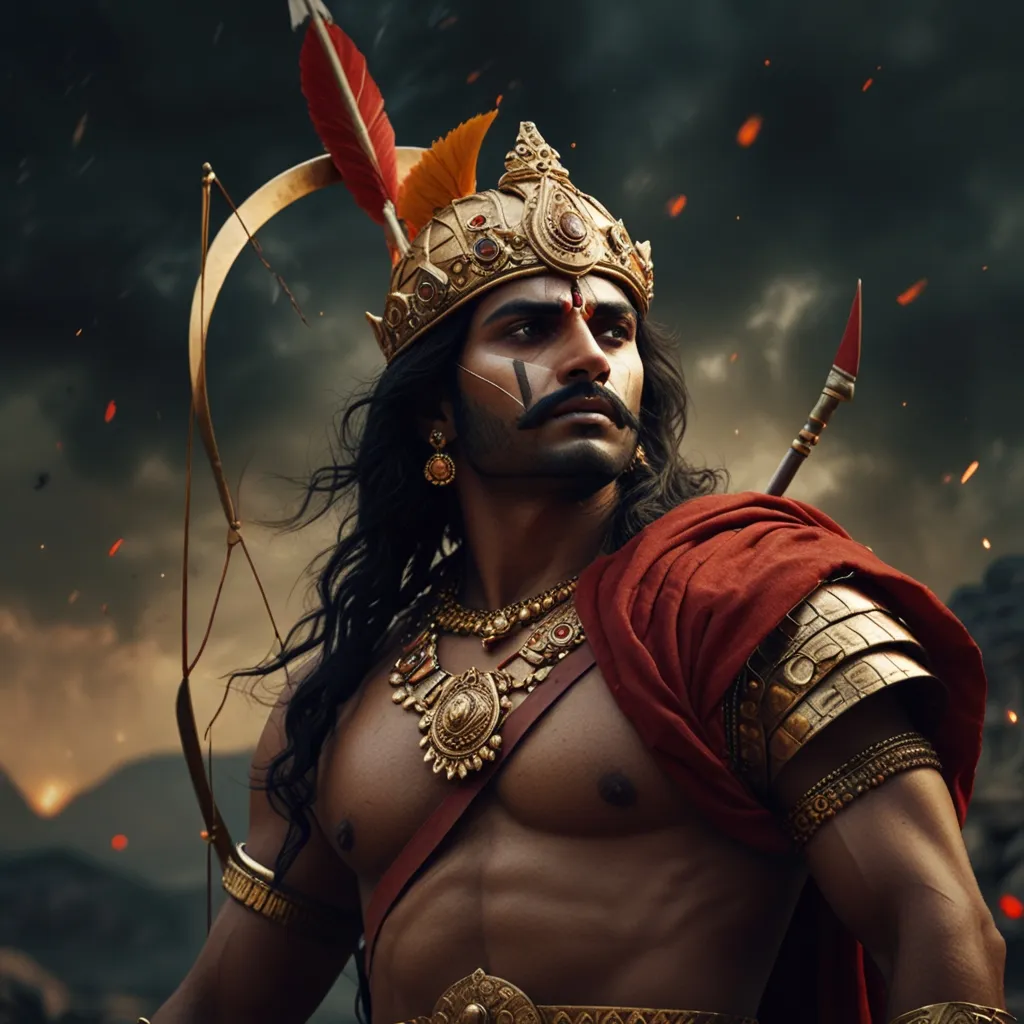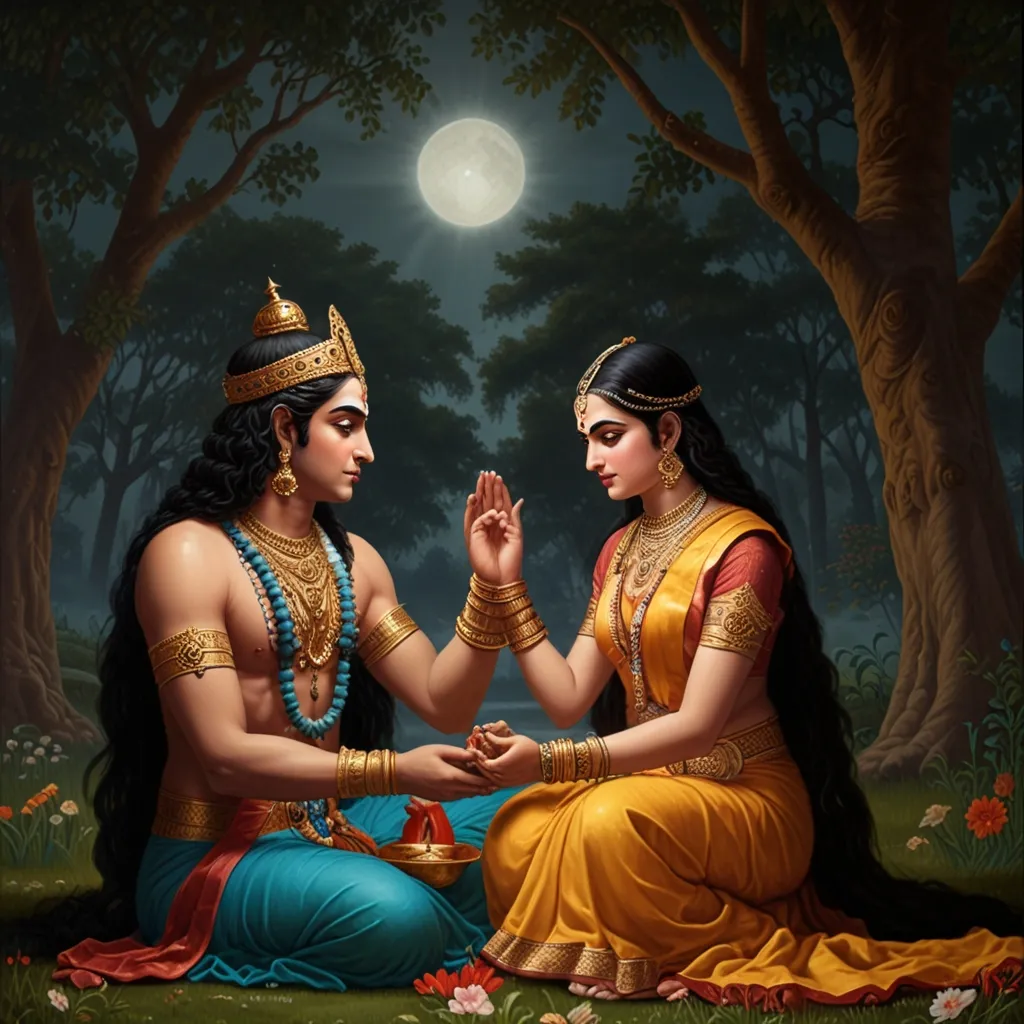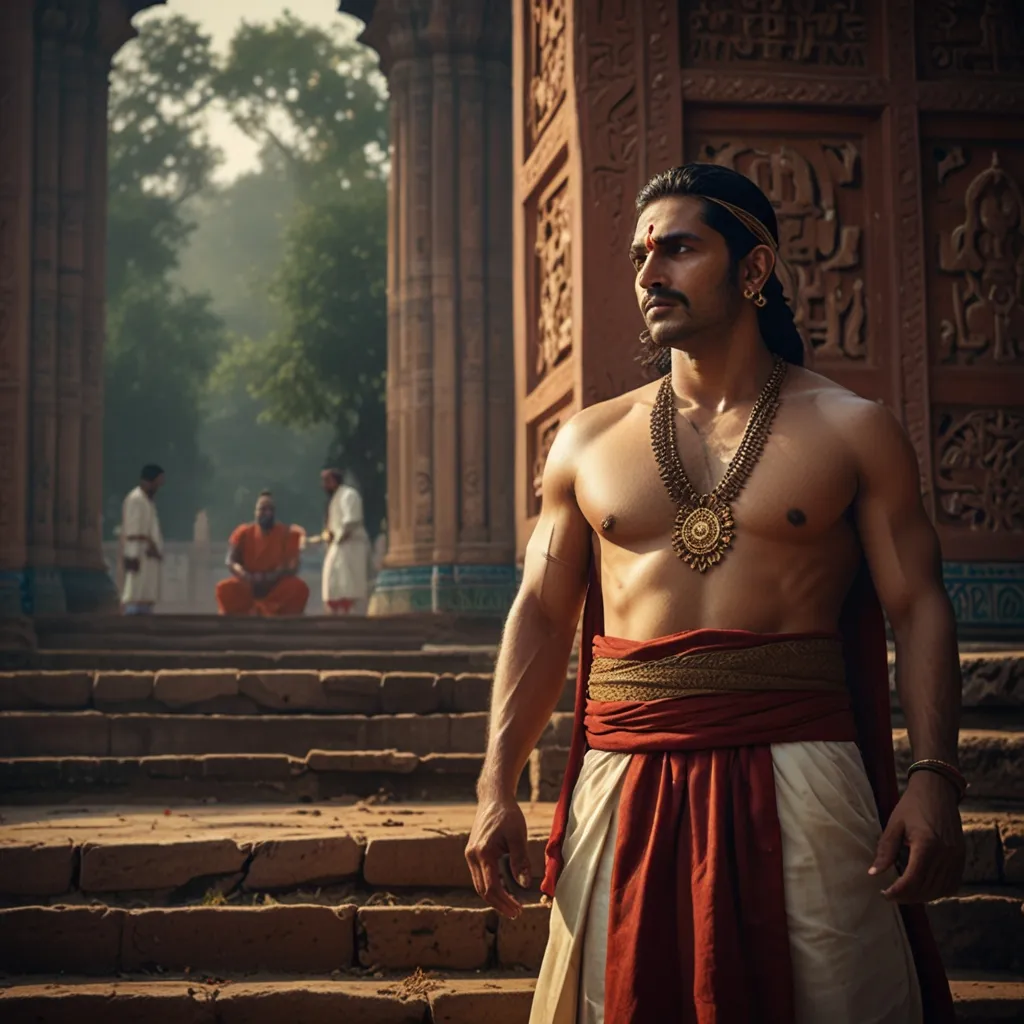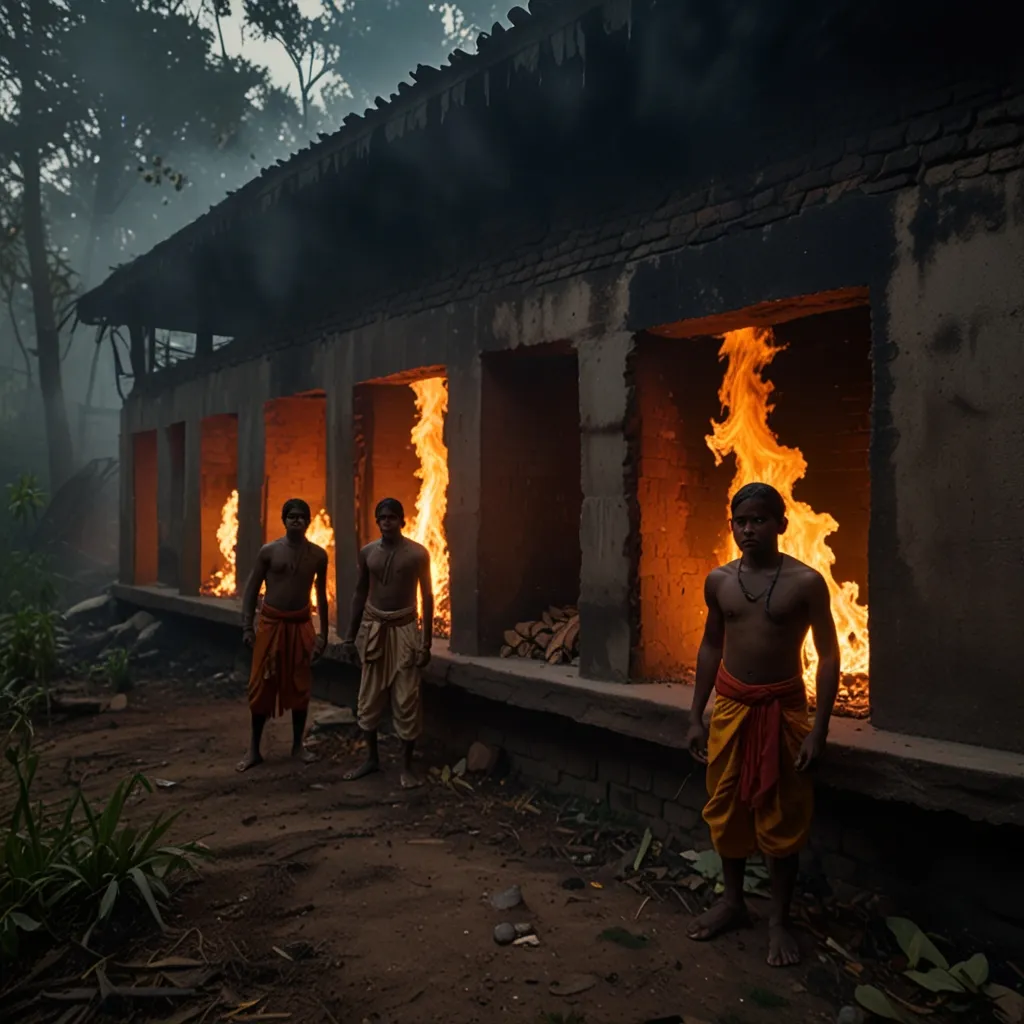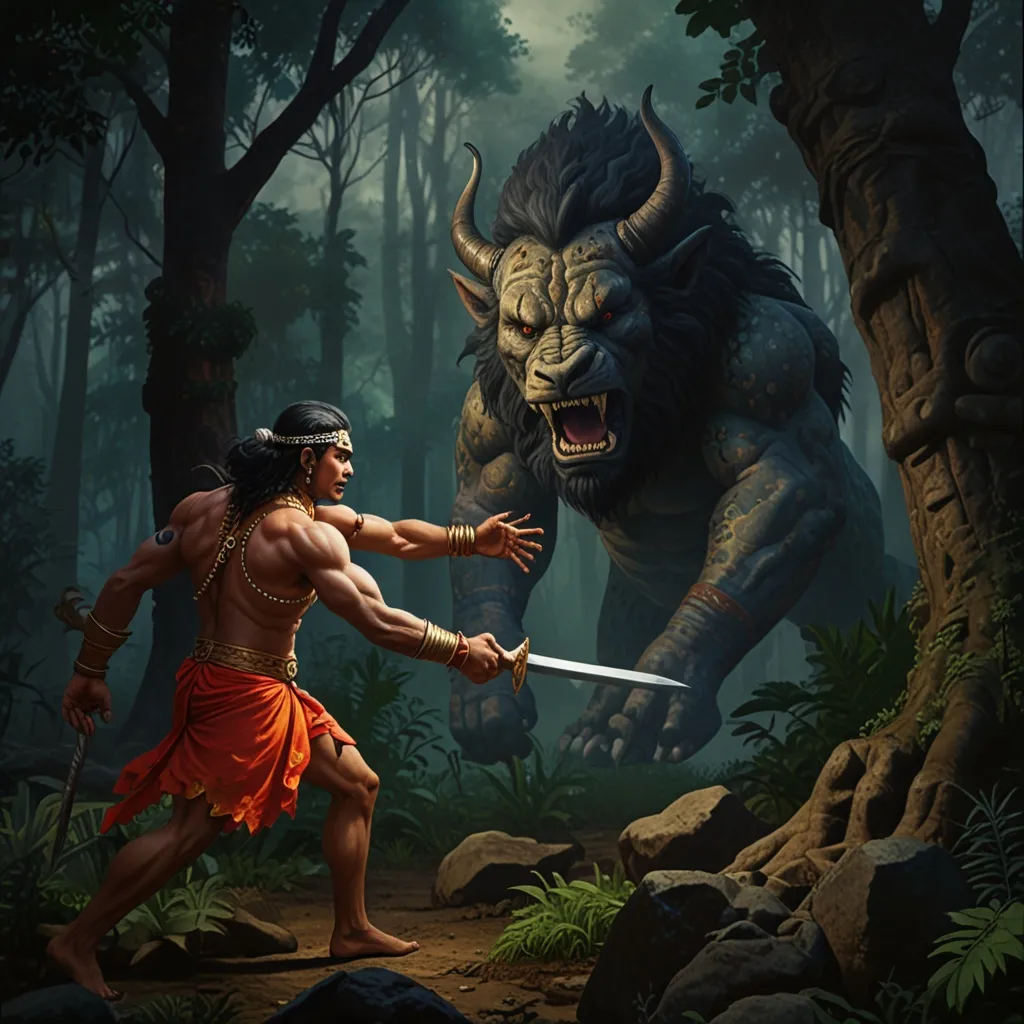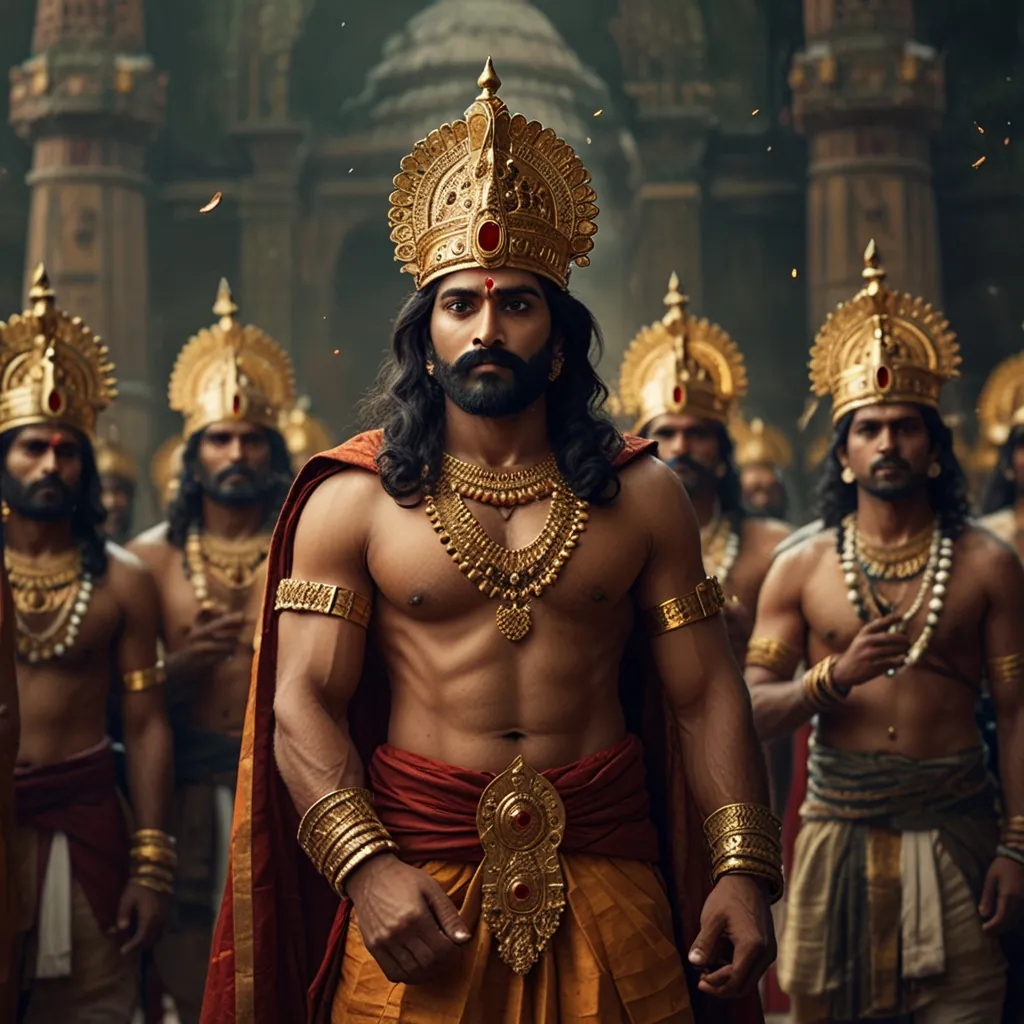In the grand tapestry of the Mahabharata, one figure stands out, blending heroism with tragic flaws in a way that leaves a lasting impression on anyone who hears his story. That figure is Karna, a warrior whose skill and fate have ensured his place as one of the most riveting characters in Indian mythology. Karna’s life is a testament to the intricate dance between destiny and free will, wrapped in the age-old battle between good and evil.
Karna’s story kicks off with a magical twist. Born from an extraordinary union between Kunti, the mother of the Pandavas, and the sun-god Surya, he entered the world with divine armor and earrings. These celestial gifts marked him for greatness. Yet, greatness seemed to dodge him at the outset. Abandoned by his mother and taken in by a humble charioteer family, he grew up under the shadow of this adopted lineage. This background became both his curse and his identity, haunting him through every step of his life.
But Karna wasn’t going to let labels keep him down. He rose from his modest beginnings, transforming into a master archer who could command both respect and envy. His skills rivaled those of Arjuna, the hero of the Pandavas, setting the stage for a lifelong rivalry that went beyond mere personal animosity—it was a collision of destinies and societal roles.
A defining moment for Karna came when he boldly challenged Arjuna in an open exhibition of martial skills. This event was no small gathering; it drew the crème de la crème of society, including both the Pandavas and the Kauravas. Until Karna took the stage, Arjuna’s phenomenal archery had been the talk of the town. But then entered Karna, matching Arjuna’s prowess arrow for arrow, leaving everyone awestruck. Suddenly, Karna was no longer just the “charioteer’s son”; he was a warrior who could stand shoulder to shoulder with Arjuna. This marked the spark of their intense rivalry, a feud that would reach its climax in the most epic of battles.
The complexities of Karna’s life were further muddied by his friendship with Duryodhana, the eldest of the Kauravas. Duryodhana, irked by the Pandavas’ undeniable popularity and skill, saw in Karna an ally who could turn the tide in his favor. For Karna, who had always felt like a misfit, Duryodhana’s friendship was a lifeline, offering him a place of honor and belonging. This bond steered Karna into the thick of the Kurukshetra War, fighting on the side of the Kauravas against his blood brothers, the Pandavas.
As the Kurukshetra War erupted, it became the crucible in which Karna’s abilities and character were tested to their limits. Rising to the rank of the third commander-in-chief of the Kaurava forces, Karna engaged in numerous fierce battles against the Pandavas. The most gripping of these was his inevitable face-off with Arjuna, a showdown foretold by fate and fanned by lifelong enmity. These duels were filled with high stakes and raw emotion, capturing the essence of both warriors’ spirits.
The climax of Karna’s story unfurled in a heart-rending battle with Arjuna. This wasn’t just swords and arrows; it was a collision of curses and divine schemes. Karna, plagued by a curse from the Earth and his guru Parashurama, struggled against unforgiving odds. His chariot wheel got caught in the mud just when he needed it the most, and at that critical juncture, he forgot the incantations for invoking the Brahmastra, a weapon potent enough to tilt the scales. In this vulnerable state, Karna was slain by Arjuna, incited by Krishna to attack him even though he was unarmed and defenseless.
Karna’s death was a crushing blow, symbolizing the tragic essence of his life—a hero shadowed by misunderstandings and misfortunes. It underscored the cruel irony and complex morality that thread through the Mahabharata, showing that even the vilified can exhibit extraordinary bravery and righteousness.
Karna’s life leaves behind a mixed legacy, a blend of respect and sorrow. He’s one of the most adored yet pitied characters in the Mahabharata, embodying the invincible human spirit tangled in an eternal struggle between duty and destiny. His story remains etched in the minds of those who encounter it, proving that in every legendary tale, it’s the human elements—the triumphs, the failures, the moments of glory and despair—that truly resonate.
